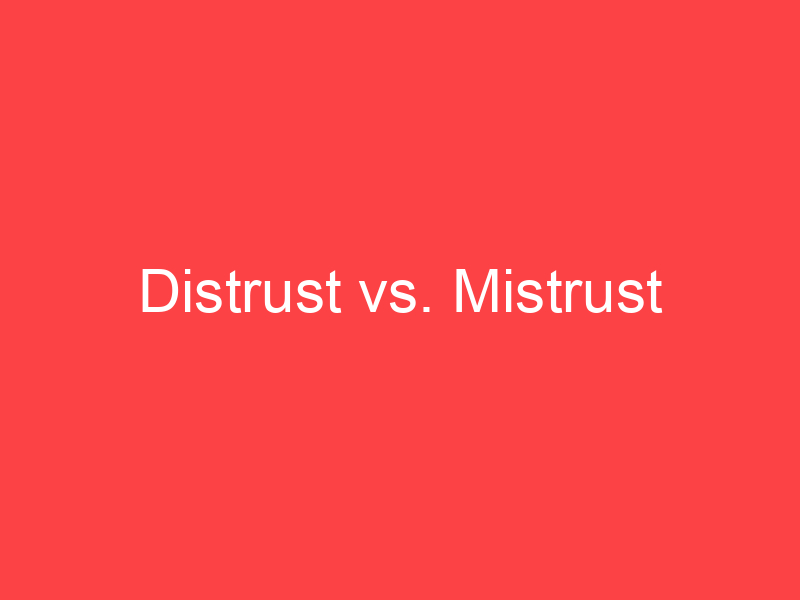-
Distrust
Distrust is a formal way of not trusting any one party too much in a situation of grave risk or deep doubt. It is commonly expressed in civics as a division or balance of powers, or in politics as means of validating treaty terms. Systems based on distrust simply divide the responsibility so that checks and balances can operate. The phrase “Trust, but verify” refers specifically to distrust.
An electoral system or adversarial process inevitably is based on distrust, but not on mistrust. Parties compete in the system, but they do not compete to subvert the system itself, or gain bad faith advantage through it – if they do they are easily caught by the others. Much mistrust does exist between parties, and it is exactly this which motivates putting in place a formal system of distrust. Diplomatic protocol for instance, which applies between states, relies on such means as formal disapproval which in effect say “we do not trust that person”. It also tends to rely on a strict etiquette – distrusting each person’s habits to signal their intent, and instead relying on a global standard for behaviour in sensitive social settings.
A protocol as defined in computer science uses a more formal idea of distrust itself. Different parts of a system are not supposed to “trust” each other but rather perform specific assertions, requests and validations. Once these are passed, the responsibility for errors lies strictly with the receiving part of the system, not that which sent the original information. Applying this principle inside one program is called contract-based design.
Corporate governance relies on distrust insofar as the board is not to trust the reports it receives from management, but is empowered to investigate them, challenge them, and otherwise act on behalf of shareholders vs. managers. The fact that they rarely or never do so in most American companies is a sign that the distrust relationship has broken down – accounting scandals and calls for accounting reform are the inevitable result. It is precisely to avoid such larger crises of trust in “the system” that formal distrust measures are put in place to begin with.
-
Distrust (noun)
Lack of trust or confidence.
-
Distrust (verb)
To put no trust in; to have no confidence in.
-
Mistrust (noun)
Lack of trust or confidence; distrust, untrust.
-
Mistrust (verb)
To have no confidence in (something or someone).
-
Mistrust (verb)
To be wary, suspicious or doubtful of (something or someone).
-
Mistrust (verb)
To suspect, to imagine or suppose (something) to be the case.
-
Mistrust (verb)
To be suspicious.
-
Distrust (noun)
the feeling that someone or something cannot be relied upon
“the public’s distrust of politicians”
-
Distrust (verb)
doubt the honesty or reliability of; regard with suspicion
“speculation remained that the Army distrusted the peace process”
-
Mistrust (verb)
be suspicious of; have no confidence in
“she had no cause to mistrust him”
-
Mistrust (noun)
lack of trust; suspicion
“the public mistrust of government”

